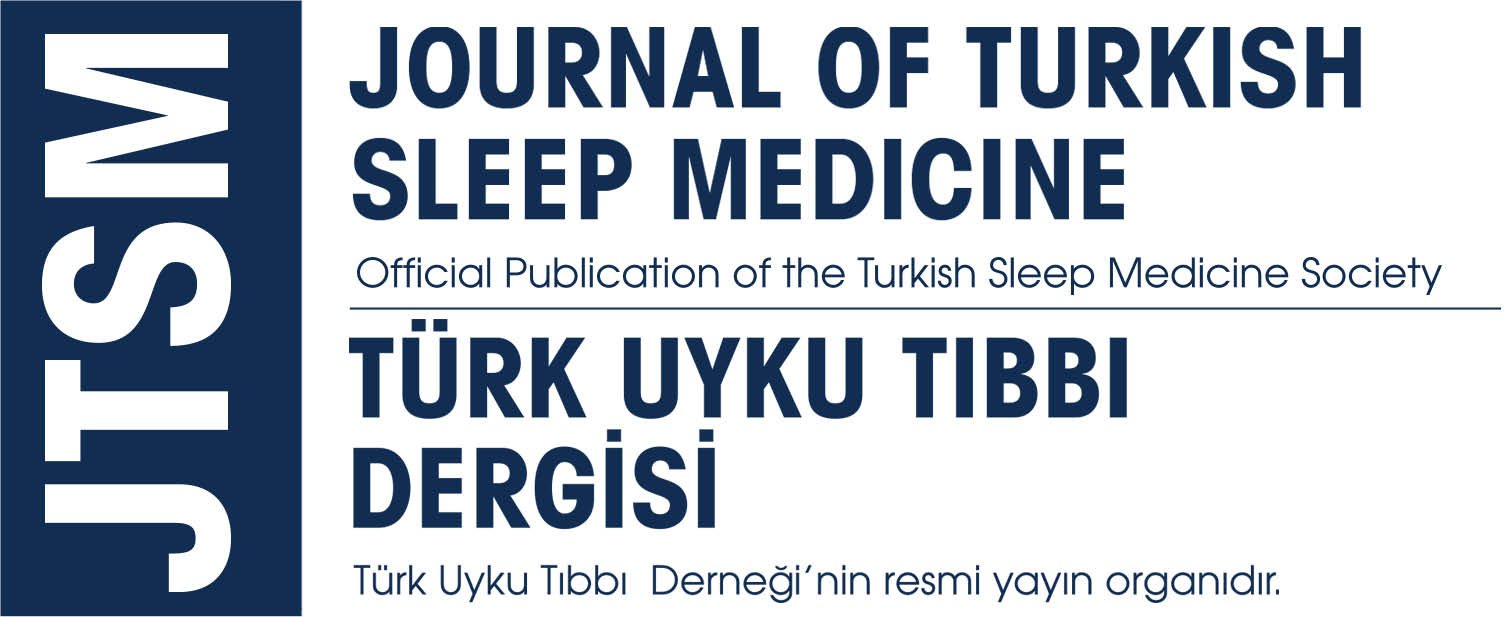ÖZET
Amaç:
Sporcu uyku davranış anketi (SUDA) elit sporcuların uyku davranışlarının değerlendirilmesinde kullanılan yeni, güvenilir ve geçerli bir ankettir. Bu çalışmanın temel amacı sporcu uyku davranış anketinin Türkçe (SUDA-TR) versiyonunun güvenilirlik ve geçerliliğine delil sağlamaktır.
Gereç ve Yöntem:
Doksan yedi sporcu ve seksen üç sporcu olmayan birey çalışmaya dahil edilmiş ve 18 maddelik SUDA-TR’yi doldurmuştur. Sporculardan oluşan bir alt grup (n=50) SUDA-TR’yi 7 gün arayla iki kere doldurmuştur. SUDA, yazarın izni alındıktan sonra iki kere ingilizceye ardından tekrar türkçeye çevrilmiştir. Test tekrar test güvenilirliği ve iç tutarlılık sırasıyla sınıf içi korelasyon katsayısı (SKK) ve Cronbach’s alpha ile yapılmıştır.
Bulgular:
SUDA-TR toplam skorunda, sporcu ve sporcu olmayan grupları arasında anlamlı fark görülmüştür (sırasıyla 38,4 ve 36,2, p<0,05). Anketin test tekrar test güvenilirliği kabul edilir seviyedeydi (SKK=0,85). SUDA-TR’nin faktör yükleri 0,41 ve 0,82 arasındaydı. Anketin 18 maddesi arasından 1 madde faktör yükünden dolayı (0,40 altında) kaldırıldı.
Sonuç:
SUDA-TR, sporcuların karşılaştıkları uyku zorluklarını belirlemek için kullanılabilen 17 maddelik güvenilir ve geçerli bir araçtır. SUDA-TR elit sporcu uyku davranışlarını değerlendiren antrenör ve araştırmacılar için pratik bir araç olarak yararlanılabilir. Bu araç ayrıca toparlanma ihtiyacı ve antrenman yükü bakımından farklı olan spor türleri arasında uyku davranış farklılıklarının incelenmesinde kullanılabilir.



